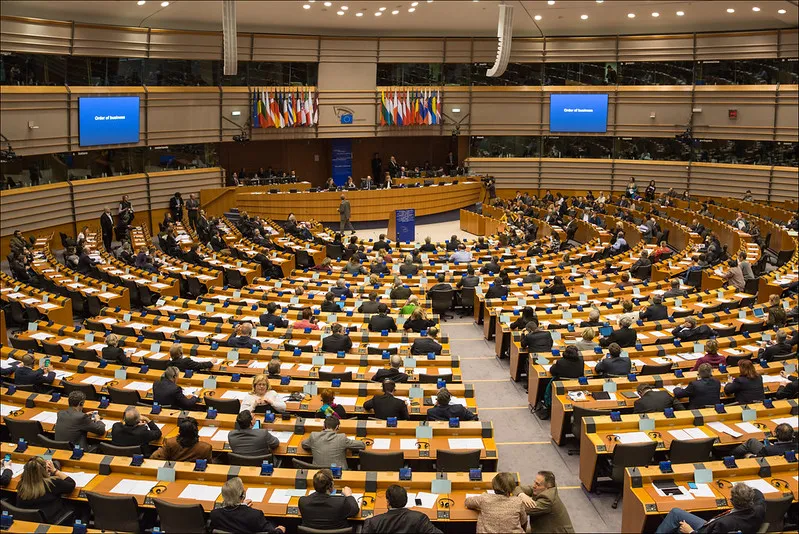The election of the European Parliament has seen a strong anti-war vote—although not enough to reverse EU policies in the short term. It has provoked a political earthquake in France and Germany, the driving axis of the European Union. This earthquake, however, won’t spread to the European Parliament, where, despite their losses, the pro-war “grand coalition,” composed of the European People’s Party, Liberals and Socialists Groups still have a majority. At the national level, however, where both Macron’s party, and the German “Traffic Light” coalition government were smashed, the result shows a strong support for anti-war parties.
Macron’s party got only half as many votes as its direct challenger, Marine Le Pen’s right-wing Rassemblement National, receiving 6% versus 32%. Macron has called for snap elections in France, in the hope that he would repeat the usual trick of making it to the second round, where he would hope to gather the anti-RN vote. But this is a risk, because his candidate could be defeated in the first round.
In Germany, the government coalition lost massively, and now is at 31%; the Alternative for Germany (AfD) is now the second largest party in the nation, and the largest in East Germany’s five states, and Wagenknecht’s new Bündnis Sahra Wagenknecht (BSW) getting a good result, with over 6%. That is a clear anti-war vote. Unfortunately, the strong vote for the pro-war Christian Democracies, CDU/CSU (30%), shows that a large chunk of voters are still brainwashed by the media.
The Italian result, where the government coalition increased its vote, is a singularity that can still be “explained” as an anti-EU vote, in part. The Meloni government, in fact, despite supporting the EU-NATO war policy, has opposed the Green Deal.




